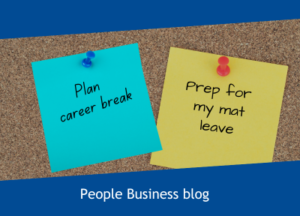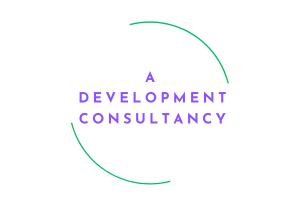Preparation and planning are key when it comes to parental leave or a career break

Taking parental leave or a career break comes with many personal and family benefits and rewards – but fail to plan and you could end up unintentionally planning to fail.
Maternity leave comes with some timelines built in. Paternity leave has its own schedule. And now shared parental leave offers increasing opportunities for parents to take additional leave to bond and bring balance to family roles. Of course, parenthood is not the only reason to take a career break, there are other great reasons why people take time out for months at a time – personal development, travel and caregiving, for example.
A career break benefits you and your organisation
Stepping away from your job can feel like a career limiting thing to do. It is easy to ponder, ”If they can manage without me for a few months, maybe they won’t want me back?” But managed well, it is possible for a career break (whatever the reason) to benefit both the individual and their organisation:
- Benefits to the individual
- It gives time to ‘switch off’ from work’s daily demands and stresses
- It gives space to regenerate
- It allows people to recalibrate their work-life balance
- When a team succeeds in your absence you can raise your level on your return to work
- Benefits to the organisation
- Improved employee retention
- Employees return to work refreshed and with a renewed sense of passion
- The development of other team members who during a temporary absence may need to step into new responsibilities
- Increased resilience within the team.
Top tips for planning a career break
Having recently coached a number of people in the run up to planned career breaks – here are some tips to help make the experience a positive one.
1. Preparation is everything – start early
- Look at the time you are away as an opportunity for your colleagues to learn and grow
- For each part of your role ask yourself, “Who would benefit from the experience of taking this on?”
- Make good time to discuss what is required. Ask “What support do you need before I go, to ensure you feel confident to take this on?”
2. Delegate, delegate, delegate
- Up your game on this critical managerial competency that is often taken for granted.
- Prepare carefully, with clarity on the outcome required for any role handed over.
- Look to give people freedom to do the task their way rather than telling them blow by blow how it should be done
- Ask “What do you understand is required?” (not “Do you understand what is required?”)
- Revisit the conversation when people have had time to think it through. Check in “How do you feel about taking this on? Is there anything else we need to pay attention to?”
3. Be clear on expectations while you are away
- Tell people your vision e.g. “I plan this to be a proper break and be fully ‘off-grid’. I won’t be checking emails – I will check my WhatsApp periodically.”
- Discuss “There might be situations where we do need to talk – what are our assumptions about when we would need to connect?”
- Plan ‘keep in touch’ meetings only if they suit you. If a call once a month will help you to step back – go for it. Or maybe an update meeting in the run up to your return to work might help you re-engage. But don’t feel obliged. Do note that many find that ‘keep in touch’ meetings or ‘check-in calls’ help with maintaining that sense of belonging.
4. Come back to work thoughtfully
- Notice how people have stepped up and give feedback about the shift you see in their confidence and capability.
- Don’t assume you will step back into an identical role, as though you had never been away. Use the opportunity to let go of elements of your job that others can grow into.
- Review one-to-one with those that you delegated roles to. Discuss
- What have you enjoyed?
- What should you continue to do even though I am back?
- What do you need to delegate to give you the capacity to take on this role permanently?
5. Use the opportunity to step up when you step back.
- Even before you take time away start a conversation with your manager and senior stakeholders about your intentions to use this experience to develop the team and to step up yourself.
- Discuss “How do we want the team and our organisation to benefit from my time away?”
- And “How do I best use my time when I return, when I hand over some elements of my role to more junior colleagues on a permanent basis?”
In our experience when people invest good time in preparing for a career break, they can do more than simply ‘manage the time away’ but can actually enhance their role and impact. If you would like to know more, please get in touch to talk to one of our consultants.




